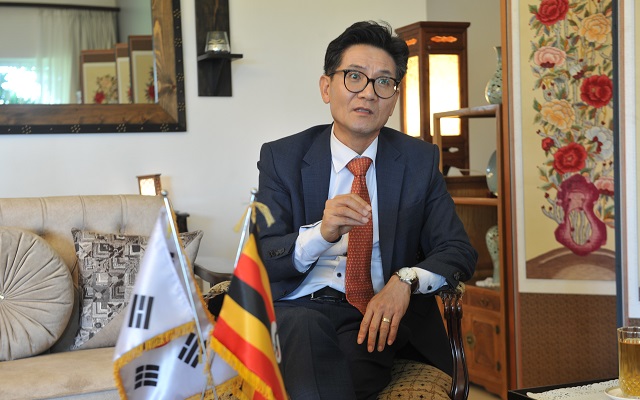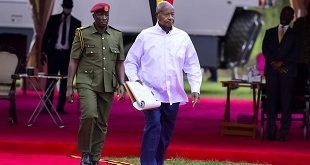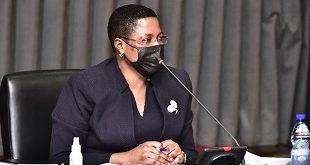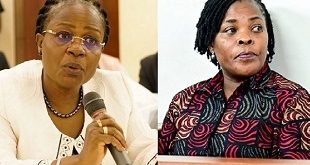
INTERVIEW | RONALD MUSOKE | Ambassador Sung-soo Park of the Republic of Korea to Uganda talked to The Independent’s Ronald Musoke about what both countries need to do to take their partnership to the next level.
How would you describe Uganda to people who have never visited?
I think the former British Prime Minister, Winston Churchill, described it befittingly as the ‘Pearl of Africa.’ I always tell my Korean friends that Uganda is a ‘hidden gem’ located at the centre of the African continent. And I always urge them to come see it for themselves. I find it to be a beautiful country; the people are kind, the weather is lovely and the society is quite young and vibrant. This is why I would wish for Uganda to establish an embassy in Seoul such that she can promote herself and increase the knowledge and interest among Koreans.
Uganda and Korea share close to 60 years of bilateral relations. How would you describe the current status of cooperation between the two countries?
In Korea, turning 60 years is referred to as “Hwan-gab,” something which symbolises returning to a new beginning of life’s cycle; like some kind of renewal. For Korea and Uganda, that means that we have to nurture new bilateral relations based on the progress we’ve made over the last 60 years. I think the current relations between Korea and Uganda couldn’t be better in political terms. But there still remains another step – of building even better relations in order to attain actual economic cooperation.
What exactly is the focus of the Republic of Korea’s bilateral relations with Uganda?
To date, Korea has focused on development cooperation with Uganda in order to help her achieve her social and economic transformation. As you know, development cooperation is an essential aspect in the diplomacy of developing countries. But it is quite challenging to sustain since it only involves one side giving and the other side receiving. That is why we are trying to shift our focus from development cooperation to economic cooperation by looking at trade and investment. But, this is also a momentous year for Korea–Africa relations. We are hosting the first ever Korea–Africa Summit in early June and the theme of the summit is the “Future We Make Together,” with three sub-themes being “Shared Growth, Sustainability and Solidarity.” We are also organising a business summit on the last day of the summit. So, I think Uganda should seize this opportunity to bolster its investment and trade cooperation with Korea.
Tell us about some of the projects your government is currently implementing across Uganda.
There are many Korean Government-funded or sponsored projects. Besides KOICA (Korea International Cooperation Agency), we have other specialized agencies such as KOPIA (Korea Programme for International Cooperation in Agricultural Technology) and KOFIH (Korea Foundation for International Healthcare) that are working hard to create, fund and implement development projects across the country. However, the size of grant aid programmes is still relatively small. For example, the total amount of grant aid to Uganda this year is US$ 37 million. That is why I am planning to pursue a couple of soft loan projects through the Korean EXIM Bank. I hope we shall soon have some good news.
KOICA is involved in several projects around the country. What has informed those projects?
As the main strategy of the new Korean government’s foreign policy, we are pursuing the Global Pivot State which means that Korea is ready, willing and able to play a bigger and more responsible role as a global pivotal state. So KOICA is one of the fastest growing institutions in Korea and this means that we are able to do more work with developing countries. The KOICA budget of last year for Uganda was US$18 million; this year it has increased to US$ 20 million, an increase of 10%. In 2016, the amount was about US$10 million. This is a positive sign because Uganda is one of our priority Official Development Assistance (ODA) partners, with our priority areas of cooperation being: regional development, education and health. Accordingly, we are implementing the establishment and operation of six TVET centres and model village projects in Mpigi and Mityana Districts as well as a WASH project in Karamoja in partnership with UNICEF.
Trade between nations is quite often a big component of bilateral relations. What could both countries do better to improve their commercial diplomacy?
As I already emphasised, trade is the one area which I really want to improve in our countries’ relations. The trade volume between Korea and Uganda is too small for our two countries’ sizable economic scale and complementarity. Korea’s total global trade volume is US$1.2 trillion; yet out of all this, trade between Uganda and Korea is worth US$ 30 million. In this regard, I would like to mention three things. First is the image or brand of a nation. When Koreans think of Uganda, they very often associate it with negative images such as poverty, corruption, starvation, and poor healthcare and so on. How would you realistically expect them to do business in Uganda with this kind of image? My point here is that, the Uganda government should make every effort to improve Uganda’s brand value abroad. I remember when I was young, Korea also had a negative image abroad. You have heard about the Korean Discount – meaning the security situation was so bad that foreign investors always discounted Korea. But all this has changed; now we are enjoying the Korean Premium. The second important thing is, there is need to foster a business-friendly environment in Uganda. Uganda should review all trade and investment related laws and regulations in order to lower and remove as much obstacles for trade and investment. Lastly, Uganda should promote herself as the economic hub of the East African Community. We have to admit that Uganda is too small economically for Korean big companies to do business and invest in. So, the East African region becomes the bigger market beyond Uganda.
Talking of image, over the last decade, we have observed a sudden interest in Korean pop-culture (soaps on television) and even sport (Taekwondo) among Ugandan urban youth. What explains this popularity of Korean pop-culture in Uganda?
Normally, we call Korean pop-culture the K-wave. The K-wave is appealing and attracting many young people around the world. They are enjoying this mega trend in Europe, the U.S, in Asia, in the Middle East, Latin America and even in Africa. The youth love the K-wave including; K-pop, K-movies, K-sport, and everything K-related. I think Ugandan culture is very attractive and addictive for young people too. For example I see the potential in the Ghetto Kids.
Uganda and the Republic of Korea share historical similarities of colonisation, civil war, donor dependency, a big rural population and youth unemployment (this was the case in the past for Korea) and yet Korea has turned around most of these challenges. What is Korea’s secret?
You know, there are three No’s in the world. First, there is no correct answer; second, there is no secret, and third, there is no free lunch. Having learned these lessons, we want to share our experience with developing countries including Uganda. Korea is a unique country as she turned from an aid-receiving country to an aid-giving country in a very short time. Today, Korea is the 11th largest economy in the world. In my opinion, there were two deciding factors for our rapid economic growth. First, was the political leadership that was fit for the spirit of the different times: strong leadership during the time of state-led industrialization, and democratic leadership during the time of transition and consolidation of the economic growth. So, we were very lucky to have the appropriate leadership at the right time. Secondly, we maintained the open economy and pursued export-oriented economic policies thus expanding our economic territories with liberal and multilateral free trade agreements and increasing our competitiveness.
If Ugandans were to learn one or two virtues from the Korean people that have contributed to the country’s nation-building and prosperity, what would those be?
This is my personal opinion. I don’t want to give Uganda a lecture or a sermon. However, I would like to emphasise what I will call the 2Ps. The first ‘P’ is the passion to live well and get rich. You can replace the word “passion” with willingness and confidence, and can-do spirit. Korean people have always been passionate about living well and getting rich. The second ‘P’ is patience. It is the sacrifice for a better tomorrow. Our parents’ generation endured all hardships with patience, striving to leave a better world to their children. They worked harder and saved more. So, based on this kind of sacrifice, we built our nation on a solid foundation.
Corruption in Uganda is a big problem and we know for sure that Korea too battled this vice in the country’s formative years. How did Korea expunge corruption from its society?
In Korea’s earlier stages of economic development, we also suffered from the corruption problem and then a government which had zero tolerance to corruption, especially among government officials, took power. So our government officials became more diligent, efficient and patriotic. Of course, under democratic leadership it is hard to impose some of these values on ordinary people but strong leadership does more to fight corruption because they have the power to do so. That is why if the government has the willingness to fight against corruption, they can do it. An attitude of no tolerance and no exception for corruption is very important.
From afar, the daily South Korea-North Korea tension is quite chilling. What is it like for the ordinary South Korean to live with this kind of existential threat next door, and do you think Korea will one day get re-united?
Every Korean wants the country to be reunited sometime soon but to be honest, the tension on the Korean Peninsular appears to be getting higher as North Korea tries to become a nuclear power. Ordinary people are worried about that. However, our government remains strong-willed against North Korea because we cannot accept North Korea becoming one of the nuclear powers. That’s why North Korea is under UN sanctions. If North Korea gives up its nuclear programme and comes back to the negotiating table, we are open to dialogue.
Going forward, what areas of interest is Korea most likely to focus on in Uganda over the next 5-10 years?
Uganda is one of our major development partners in Africa and my dream is for her to become one of Korea’s main trading partners in Africa. For this to be realised, we have to increase our mutual understanding, know more about each other and gravitate towards each other. I would like to wrap up this interview with three points. First, Uganda should set up an embassy in Seoul at the earliest possible time. This is very important because many African countries have their embassies in Seoul, such as Rwanda and Tanzania. And even Mauritania is planning to set up an embassy. Secondly, Uganda should take advantage of this year’s Korea-Africa Summit to level up our relations and cooperation. Finally, Uganda should foster her business environment and conditions to make our relations more sustainable in more mutually beneficial ways. I want many Korean companies to come to Uganda and do business here. However, in order for this to be realised, Uganda should do her part. Right now, there is no Investment Protection Treaty and Double Taxation Treaty between Uganda and South Korea. Without these rigorous frameworks, Korean companies don’t have the impetus to invest in Uganda. I think Uganda needs to work hard on its business environment.
 The Independent Uganda: You get the Truth we Pay the Price
The Independent Uganda: You get the Truth we Pay the Price



It is a good interview to know about Korea-Uganda relationships.